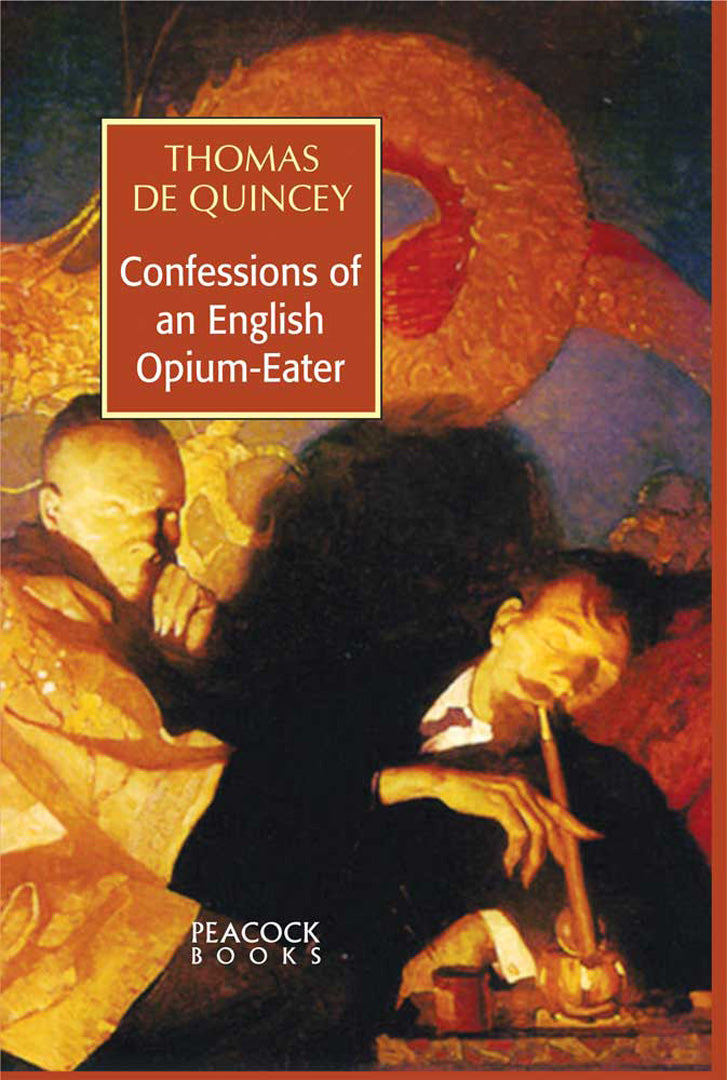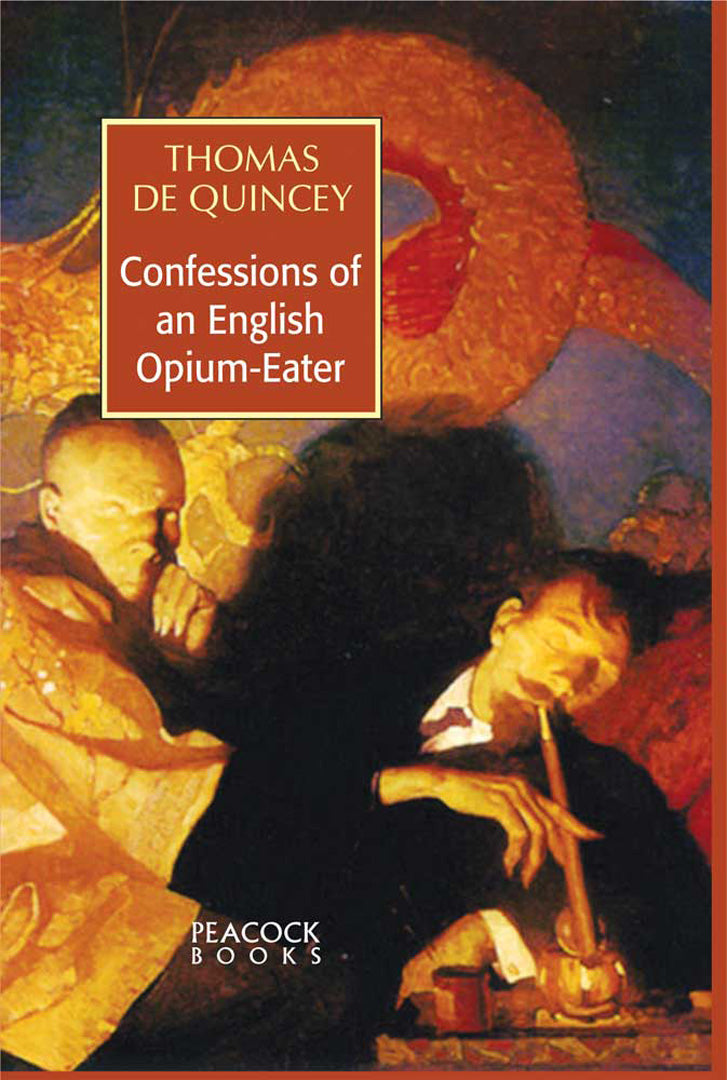Confessions of an English Opium Eater
Confessions of an English Opium Eater
Thomas De Quincey
Couldn't load pickup availability
Share

More Information
- ISBN13:
- Publisher: Atlantic Publishers and Distributors (P) Ltd
- Publisher Imprint: Peacock Books
- Publication Date:
- Pages: 276
- Binding:
- Item Weight:
- Original Price:
About The Book
Confessions of an English Opium-Eater is Thomas De Quincey’s autographical account. In it, he describes his opium and alcohol addiction and its effect on his life. It was his first published “major work…and the one which brought him fame almost overnight...” Confessions were first published anonymously in September and October 1821 in the London Magazine. The book form came in 1822, and again in 1856, in an edition revised by De Quincey.
The original account was organized into two parts: Part I begins with a notice “To the Reader” and established the narrative frame: “I here present you, courteous reader, with the record of a remarkable period in my life....” Thereafter, there is substance of Part I. Preliminary confessions in this part are devoted to author’s childhood and youth, and describe the emotional and psychological factors that formed the basis of later opium experiences.
Part II is divided into a number of parts. There is a brief introduction and connecting passage, followed by “The Pleasures of Opium”, which discusses the early and largely positive phase of the author’s experience with the drug, between the years 1804 and 1812. “The Pains of Opium” recounts author’s extreme opium experiences up to that time, marked by insomnia, nightmares, frightening visions, and difficult physical symptoms.
It is said that even when trying to convey darker truths, De Quincey’s language can seem seduced by the compelling nature of the opium experience whereby “the sense of space, and in the end, the sense of time, were both powerfully affected. Buildings, landscapes, etc. were exhibited in exaggerated proportions.
The Confessions represents De Quincey’s initial effort to write what he called “impassioned prose”. It maintained a place of primacy in De Quincey’s literary output, and his literary reputation, from its first publication. There came numerous editions of the book. It was also translated into other languages.
About The Author
THOMAS PENSON DE QUINCEY (1785 – 1859) was an English essayist. It is believed that he started the tradition of addiction literature in the West. His writing career started when he became editor of The Westmorland Gazette, a Tory newspaper published in Kendal. But he was blamed for the lack of “regular communication between the Editor and the Printer”, and he resigned from the post.
In 1821 he was asked to write and publish an account of his opium experiences. He wrote the experiences which appeared in the London Magazine the same year. This new sensation eclipsed Charles Lamb’s “Essays of Elia”, which were then appearing in the same periodical. When “The Confessions of an English Opium-Eater” were published in book form, De Quincey made literary acquaintances. He was famous for his conversation. Richard Woodhouse wrote of the “depth and reality of his knowledge”, and his conversation which “appeared like the elaboration of a mine of results.”
Blackwood’s Edinburgh Magazine and Tait’s Magazine received a large number of contributions of De Quincey’s writings. Tait’s published a series of his reminiscences of Wordsworth, Coleridge, Robert Southey and other figures among the Lake Poets. It became a series that taken together constitutes one of his most important works.
The Works of Thomas De Quincey appeared in fourteen volumes in 1889 and 1890. His writings were so voluminous and widely-dispersed that more collections followed: two volumes of The Uncollected Writings (1890), and two volumes of Posthumous Works (1891 and 1893). Yet another volume, New Essays by De Quincey, appeared in 1966.
De Quincey influenced many writers like Edgar Allan Poe, Fitz Hugh Ludlow, Charles Baudelaire and Nikolai Gogol. Some major 20th-century writers such as Jorge Luis Borges admired him and claimed to be partly influenced by his work.

